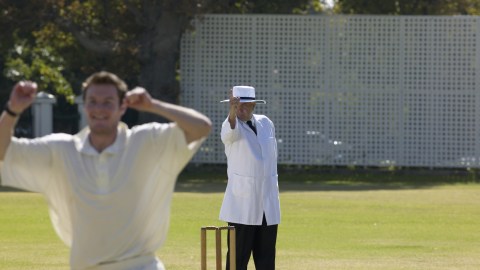‘Impartial’ Refs May Make Calls to Favor Home Team, Subconsciously

Fans like to blame refs’ bad calls on biased. Some think this tactic is used to mask their team’s defeat. But the home field advantage may not be the myth some people think it is. It’s a statistical fact, according to three economists.
Max Ufberg of Pacific Standard writes on a study conducted by Abhinav Sacheti, Professor David Paton of University of Nottingham, and Professor Ian Gregory-Smith of University of Sheffield. The three reviewed 1,000 professional cricket matches from 1986 to 2012, where they observed the refs’ calls and how many times the home or away team benefited from those rulings. The research team focused on a particular ruling called the Leg Before Wicket (LBW). This call concerns a possible foul on the batter where the ball would have hit the wicket if not for the batter’s body obstructing the throw.
The team found that away teams suffered a biased from LBW calls 10 to 16 percent more than their hosts. Researchers hypothesized in their abstract whether the home crowds influenced these biased calls. However, the team found that these rulings were more pronounced toward the end of a game than in the early stages. An interesting find, as crowds are often at their smallest toward the end in cricket (matches can last for five days)—eliminating the question of crowd influence on the officials decisions.
After a 1994 mandate, calling for one umpire to reign from a neutral site, there was a drop in calls favoring the host. Away teams only got called for LBWs 10 percent more. Before this new rule was in place both officials came from the home team’s region. Another mandate in 2002 called for both umpires to be from a neutral area, which dropped the percentage even further.
“When two neutral umpires were required in every Test match, this advantage to home teams disappeared. This result holds even when we control for the quality of teams, the ground where the match was played and so on.”
Regardless of this find, fans will likely continue to blame biased for their team’s loss. Whether it’s true for their sport or not.
Read more at Pacific Standard
Photo Credit: Shutterstock





